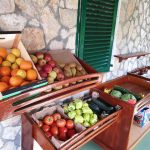ZAGREB, March 5, 2018 – Croatian MEP Biljana Borzan (SDP) on Monday said that she had secured additional 800,000 euro from the EU budget to test the different quality of same brand products on EU markets, which should serve as the basis to amend the law on labelling products and unfair trade practices in the EU.
In December, Borzan was appointed as rapporteur on dual quality products on Eastern and Western EU markets and has now won support for a pilot project to be conducted by the Committee on the Internal Market and Consumer Protection to test the quality of products. The recently adopted EU budget has allocated 800,000 euro for the project, a press conference in European House in Zagreb heard.
“The European Commission has secured two million euro for the development of a methodology to test products at the entire EU level, after which I asked that a pilot project be financed with additional 800,000 euro just for testing, which has been added to the budget… That should be the basis for amendments to legislation when it becomes obvious what is actually occurring on the market,” she said. “Our aim is to change the directive on unfair trade practice so that dual quality products are put on a black list of unfair trade practice,” the Croatian MEP added.
The methodology will be defined by April and testing of the quality of food products should begin in May. After that, other non-food products will be tested, the press conference heard. “We expect the results of the testing by the end of the year and, in the meantime, negotiations in the European Parliament and European Commission are continuing so that I expect the results will be ready when the process of amending the legislation is in full swing,” Borzan said.
She assessed that a key indicator of the change in the commission’s attitude was obvious after President Jean-Claude Juncker made his address on the Union and said that the practice had to change.
Even though nothing concrete has occurred, that was a “sign that the Commission has realised that we have two Europes within the EU, which is unacceptable as there are no borders in a single market,” she added.
Sixteen countries have applied for taking part in the Commission’s research and even though a similar test was conducted in Croatia, Croatia did not apply, Borzan said. “Croatia unfortunately will not take part in the survey, after the Economy Ministry missed the opportunity to apply for funding at the end of 2017, even though we had the methodology worked out that was commended in the European Union and that was developed by the Croatian Food Agency,” she said. She criticised the ministry for not “recognising the problem.”
Last year, Borzan conducted a survey together with the Croatian Food Agency and compared products in the Croatian and German markets. Earlier surveys showed that the quality of products in the German market were of a better quality. The survey, conducted in cooperation with the Croatian Food Agency in several accredited laboratories in the country, showed that only 4 of the 26 products tested (15%) did not differ in quality or price. A difference in quality was identified in 54% of the products, while more than 60% of the products were more expensive in Croatia.
After the results of the survey were released, companies like HiPP withdraw products of poorer quality from the Croatian market, which is clear proof that the survey was justified. “I expect producers to follow the example of HiPP and to withdraw poorer quality products,” Borzan said in her comments in September 2017.







